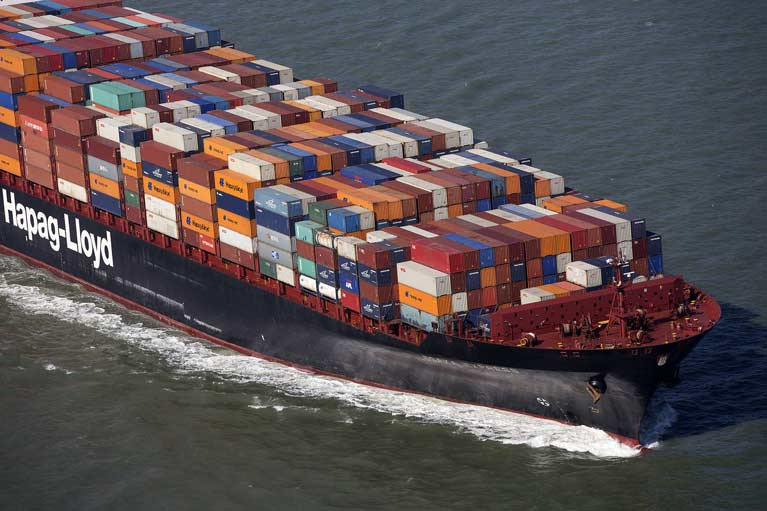European merchant ships generate almost four per cent of total EU carbon dioxide (CO2) emissions, a new EU report states.
The European Commission’s report - the first of its kind on CO2 emissions from maritime transport - estimates that merchant ships added over 138 million tonnes to EU carbon emissions in 2018.
This amounts to some 3.7 per cent of the EU’s CO2 emissions – comparable to the emissions generated by the country of Belgium.
However, the “vast majority” of ships working in and out of European waters have cut their speed to save on energy and fuel and reduce emissions, the report says.
The data was drawn from reports filed for that year by 11,600 ships over 5,000 gross tonnes in size, representing some 38 per cent of the world merchant fleet.
The report shows that around two third of reported CO2 emissions related to voyages to or from a port outside the European Economic Area (EEA).
Voyages inside the EEA represented only 32% of total CO2 emissions, and emissions from ships in EEA ports stood for 6% of total emissions, it says.
“When comparing CO2 emissions across different ship types, container ships represented the largest share of total emissions, with over 30%,”it says.
Some two-thirds of the ships monitored are non-EU flagged, and over half are owned by entities based in the EU, it states.
The report says that most of the monitored fleet “already meets” the global energy efficiency standards applied from 2020 to 2025.
It notes that the “vast majority of ships” have reduced their speed compared to 2008 by between 15 and 20%.
Cruising at lower speeds saves energy and fuel, and can significantly reduce CO2 emissions, it notes.
It says that the data and report will be published each year, to allow a better understanding of the characteristics, CO2 emissions and energy efficiency of the monitored fleet.
The EU has drawn up plans to cut emissions from shipping, which are projected to grow rapidly if unchecked in the next three decades.
An EU regulation was passed in 2018 on monitoring, reporting and verification of CO2 emissions from maritime transport.
It requires shipping companies to monitor their CO2 emissions, fuel consumption and other relevant information during navigation to or from ports in the EEA, when they transport cargo or passengers for commercial reasons.
The 11,600 ships monitored cover a large variety of ships from roll-on/roll-off passenger ships to bulk carriers, tankers and container ships, and are relatively young at an average of 11 years.
Ferry company Stena Line has recently reported that it is ten years ahead of the international shipping targets for reducing emissions.
It says it is currently involved in several projects with alternative fuels and propulsion, including the world’s first methanol powered vessel.
 Stena Line's first electric Ferry, Eletkra, is planned for 2030
Stena Line's first electric Ferry, Eletkra, is planned for 2030
It also plans to launch a fully battery powered vessel before 2030, according to Stena Line head of sustainability Erik Lewenhaupt.































































